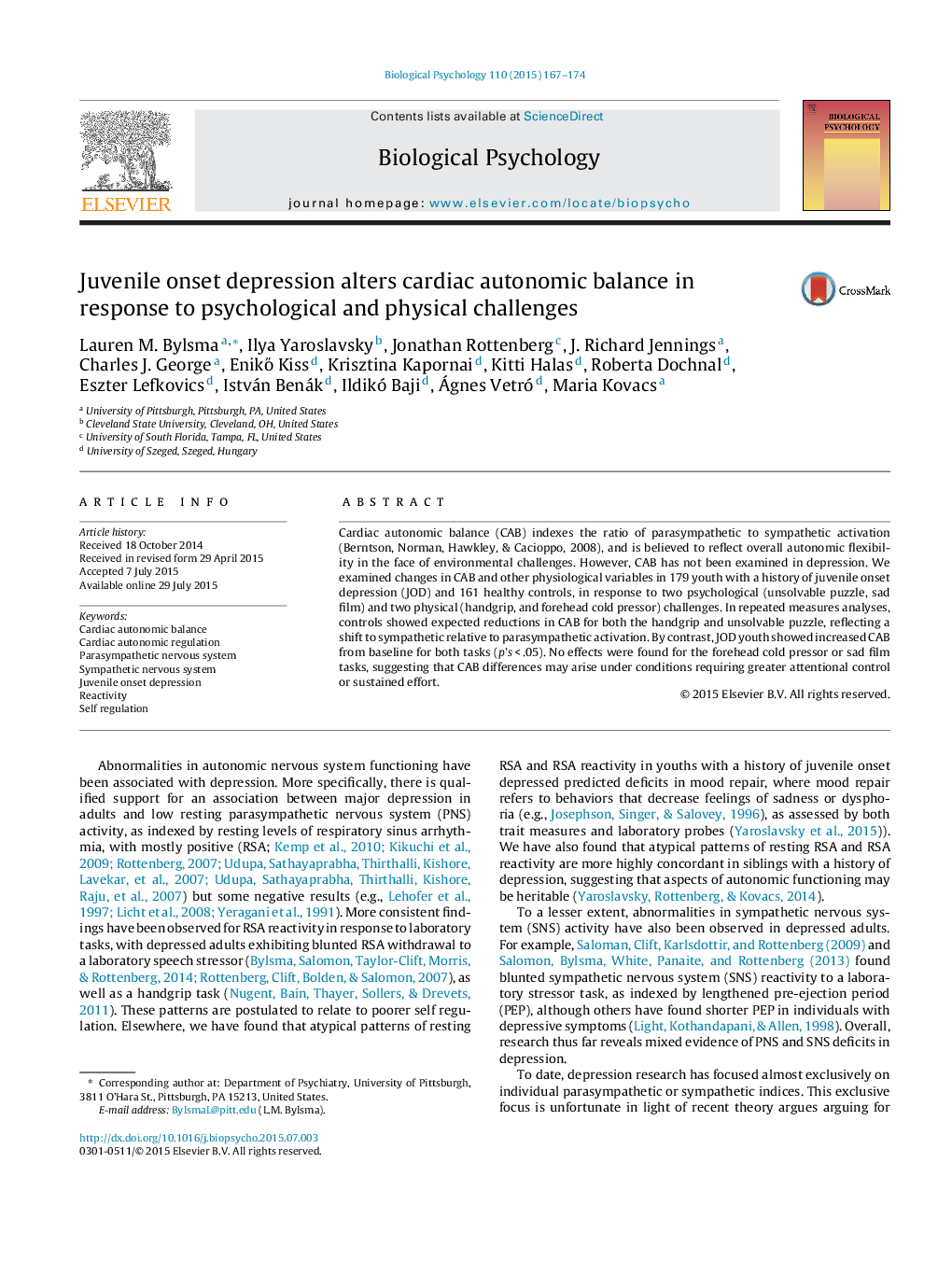| Article ID | Journal | Published Year | Pages | File Type |
|---|---|---|---|---|
| 920803 | Biological Psychology | 2015 | 8 Pages |
•We examined cardiac autonomic balance in youth with a history of depression.•Changes in cardiac autonomic balance were measured using four laboratory tasks.•Youth with a history of depression showed abnormalities in autonomic balance.•Results may have implications for depression risk and self regulation.
Cardiac autonomic balance (CAB) indexes the ratio of parasympathetic to sympathetic activation (Berntson, Norman, Hawkley, & Cacioppo, 2008), and is believed to reflect overall autonomic flexibility in the face of environmental challenges. However, CAB has not been examined in depression. We examined changes in CAB and other physiological variables in 179 youth with a history of juvenile onset depression (JOD) and 161 healthy controls, in response to two psychological (unsolvable puzzle, sad film) and two physical (handgrip, and forehead cold pressor) challenges. In repeated measures analyses, controls showed expected reductions in CAB for both the handgrip and unsolvable puzzle, reflecting a shift to sympathetic relative to parasympathetic activation. By contrast, JOD youth showed increased CAB from baseline for both tasks (p's < .05). No effects were found for the forehead cold pressor or sad film tasks, suggesting that CAB differences may arise under conditions requiring greater attentional control or sustained effort.
